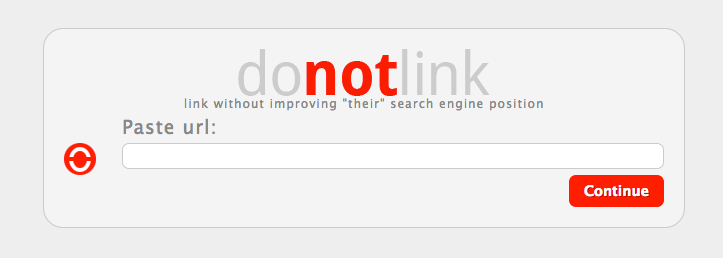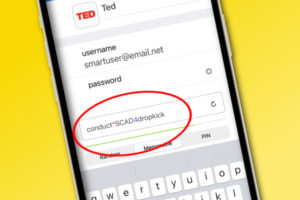If you write a blog, or are on any kind of social media, there’s probably been a time that you wanted to publish a link to a site you didn’t particularly like–maybe to complain about a negative brand experience, or alert people to a scam. But those of us familiar with the idea of “Google juice” know that any links, even in a negative context, help a website in search rankings. And that’s where this super clever resource comes in.

Donotlink.com is pretty fascinating: just type in a url and you’ll get a shortened version (like a bit.ly or ow.ly link) that routes it through a server which keeps the search engine robots from crawling the site and indexing it.
In human terms, what that means is that if you try to get all your friends to spread the word about how shadywebsite.com is not really making good on their cheap Viagra claims that you were hoping for, you can do just that without pushing shadywebsite.com higher in search engines for the “cheap Viagra” keyword. If enough people do this, you’ll be helping other unsuspecting cheap Viagra customers from getting ripped off.
You can even take care of the issue without visiting the website directly. Just type the donotlink.com url first: https://www.donotlink.com/www.shadywebsite.com/ and you’ve just become an internet scammer’s worst nightmare.
Power to the people! –Liz
Visit Donotlink.com to create a shortened URL that search engines can’t crawl.
[via swiss-miss]






Hello, it looks like there’s been quite a bit of abuse on do not link. I see they’ve flagged articles simply because users disagree, politically or in a religious sense, with what the article says. Many of these articles aren’t scams, and many aren’t objectionable or illegal. I know my own blog has been flagged by this and I have no clue what this means or how to remove myself. Nor do I have any idea who did this. I write about controversial stuff and my own personal experience. It’s a personal blog. My lawyer friend says it might be retaliation.